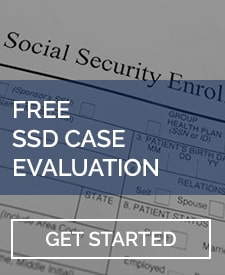What is the difference between SSI and SSDI?
The Supplemental Security Income (SSI) program does not require you to have worked and paid taxes into the Social Security system to qualify. The qualification requirements for this program look at your current financial situation while also determining your medical eligibility. To qualify for SSI, you must meet both financial requirements along with certain medical requirements. SSI looks at both your income and assets when determining if you meet the financial requirements. The asset limit for individuals is $2,000 while for a couple it is $3,000. Excluded from assets are one home and one vehicle, while all other possessions will be counted towards your assets. In general, the income limits for an individual are $783 and for a couple are $1,175.
One benefit of the SSI program is that if you are found financially and medically eligible, you will be able to obtain health coverage through Medicaid. Medicaid is a state-run health insurance program that is available for low-income individuals who are either disabled, single parents, or elderly.
On the other hand, the Social Security Disability Insurance (SSDI) program is an insurance program run by the federal government meant to provide you financial assistance if you find yourself in a situation where you are unable to work due to a medical condition. This program is similar to car insurance in that you pay a premium and have disability coverage for a certain time period. You pay your “premium” by working and paying taxes into the social security system. To qualify for this insurance, you must have worked long enough and contributed enough in taxes to have this disability coverage. You must also prove your disability began prior to your disability insurance expiring. Unlike retirement benefits, you only have disability insurance coverage for approximately 5 years from when you stop working. If you are approved for disability benefits, you would be eligible to receive a monthly monetary benefit which is determined by how much money you have contributed to the program.
Both programs require the same medical determination to see if your conditions meet the definition of disability. If you are covered by the disability insurance program, the next step is to prove your medical eligibility. Meaning, your medical conditions must meet Social Security’s definition of disability. Social Security Disability is defined as the inability to engage in the substantial gainful activity (SGA) by reason of any medically determinable physical or mental impairment(s) which can be expected to result in death or which has lasted or can be expected to last for a continuous period of not less than 12 months.
Call us today to schedule a consultation or fill out the Social Security Disability Evaluation form.




